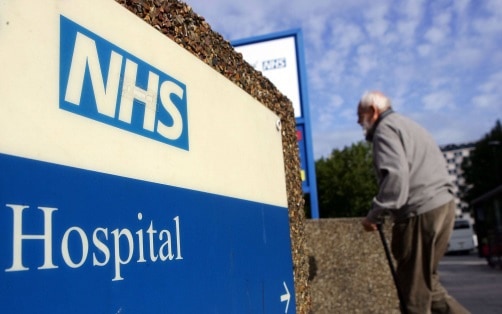
Lethal triple mix of winter viruses could “push NHS to breaking point”
pharmafile | July 15, 2021 | News story | | COVID-19, NHS, influenza
A report from the Academy of Medical Sciences has found that a lethal triple mix of COVID-19, influenza, and the respiratory virus Respiratory Syncytial Virus (RSV), could push an already depleted NHS to breaking point this winter.
The report brought together 29 leading experts alongside 57 members of the public, at the request of the Government Chief Scientific Adviser, to forecast the greatest risks to health this winter, finding a number of concerning predictions.
Professor Sir Stephen Holgate, Chair of the Expert Advisory Group, said: “Despite a highly successful COVID-19 vaccine campaign, the pandemic is not over yet. The message from our report is clear – COVID-19 is still with us and remains a threat to our health both directly and indirectly. All parts of society need to take action to head off the serious health risks we are facing now, and in the future.”
The findings of the report highlighted concerns over a potential surge in respiratory viruses that could cause widespread infections and ill health, applying pressure on an already overworked NHS. New modelling carried out for the report suggests this winter influenza and RSV hospital admissions and deaths could be two times that of a ‘normal’ year and could coincide with an increase of COVID-19 infections, and their associated long-term consequences.
Before the pandemic, winter bed occupancy in the NHS regularly exceeded 95%. However, this year the NHS will be operating with a reduced number of beds because of infection control measures meaning the added pressure predicted will only further exacerbate stress on the NHS.
The report also highlighted that the NHS is reporting a shortage of nearly 84,000 staff, and a shortage of 2,500 GPs, and also indicated that staff fatigue and burnout will also be a challenge.
Professor Azra Ghani FMedSci, Expert Advisory Group member, said: “It is very difficult to predict the course of the pandemic this winter. We do not know how people will react to relaxing restrictions and the impact this will have on transmission, how long the COVID-19 vaccines will provide immunity for, or what new disease variants may emerge.
“Our modelling suggests a summer peak of COVID-19 infections with subsequent local outbreaks over winter – though we can’t completely rule out another winter wave. Whilst we expect the peak in deaths to be considerably lower than last winter, under some scenarios we could see hospital admission rise to similar levels. Furthermore, with a high level of virus circulating in the community there is a risk that the number of people living with long COVID could double.
“Our modelling of a reasonable worst-case scenario also shows we could be dealing with around twice the levels of influenza and RSV this autumn and winter, causing widespread ill health and even greater pressures on the NHS.”
Between 15,000 and 60,000 people could die from influenza this winter according to new modelling for the report, though the planned widespread flu vaccination should help to reduce this risk. The report is calling for measures to make sure that everyone who is eligible for a flu vaccination gets vaccinated, and for wider use of testing and antivirals to treat influenza for the most vulnerable, and those who become particularly ill.
The pandemic has had a disproportionately negative impact on people from poorer or disadvantaged backgrounds, minority ethnic groups and deprived regions. The report urges that all efforts to address the pandemic and the UK’s recovery must look to stop and reverse the unequal impacts of COVID-19 on health and wellbeing.
Lynn Laidlaw, Co-chair of the Patient and Carer Reference Group and Expert Advisory Group member said: “It is very hard to hear that the pandemic is not over and there is a difficult winter ahead of us, especially as restrictions are easing.
“We are calling on leaders in national and local governments, research institutions and healthcare organisations to listen to those who are most affected by the pandemic when preparing for the winter challenges ahead. Involve us in your decision making, let us help you communicate with people about the choices they have, and let us help prioritise where resources go. We urge you to work closely with the public and their communities to make sure everyone can protect their mental and physical health – and that of their loved ones.”
Kat Jenkins
Related Content

NICE recommends migraine treatment for NHS use
The National Institute for Health and Care Excellence (NICE) has shared draft guidance recommending AbbVie’s …

Gilead’s Veklury recommended by NICE for COVID-19 treatment
Gilead Sciences has announced that the National Institute of Health and Care Excellence (NICE) has …

NICE expands access to Paxlovid for 1.4 million people at risk of severe COVID-19
The National Institute for Health and Care Excellence (NICE) has announced that it has expanded …








